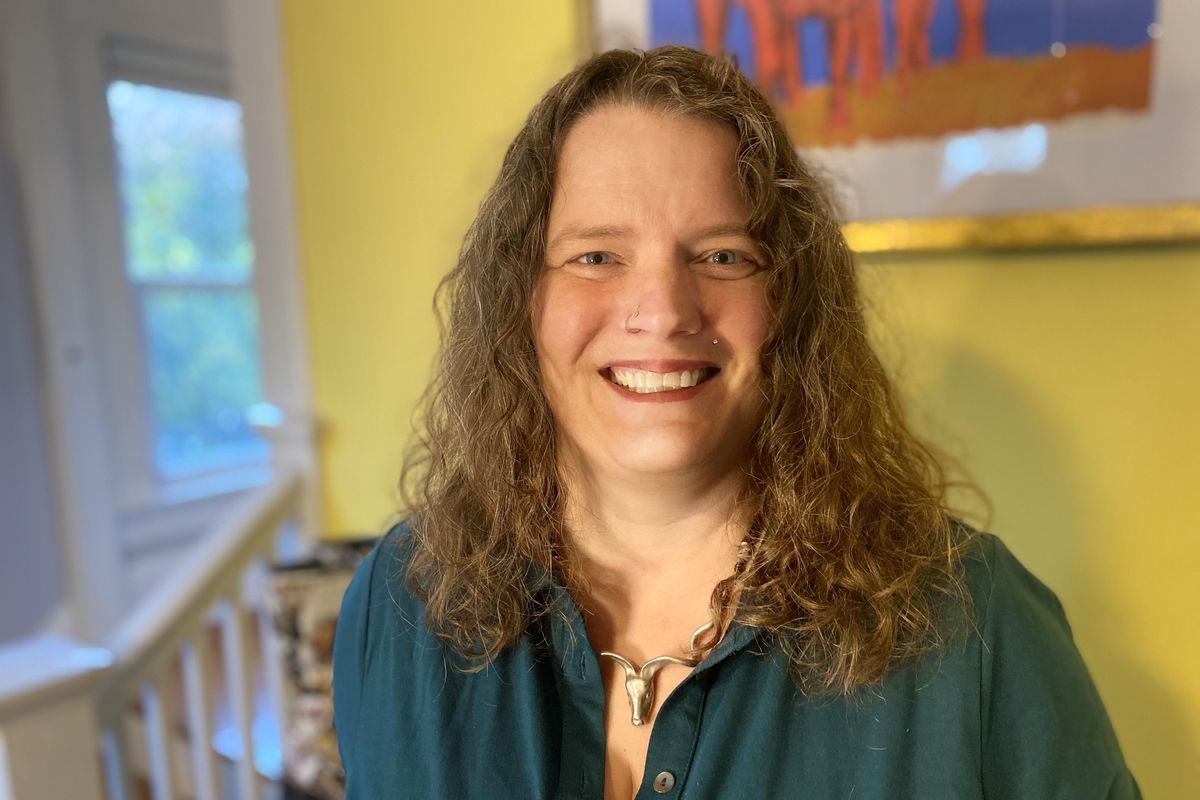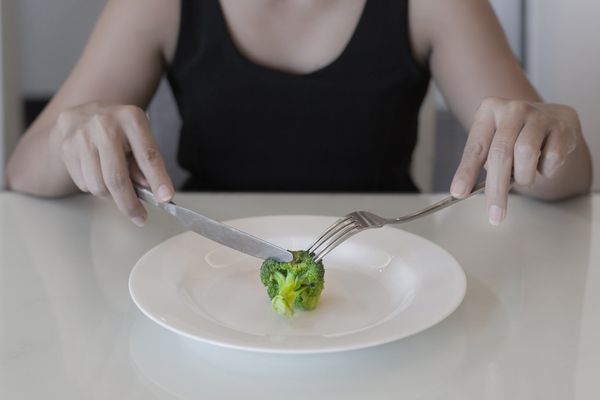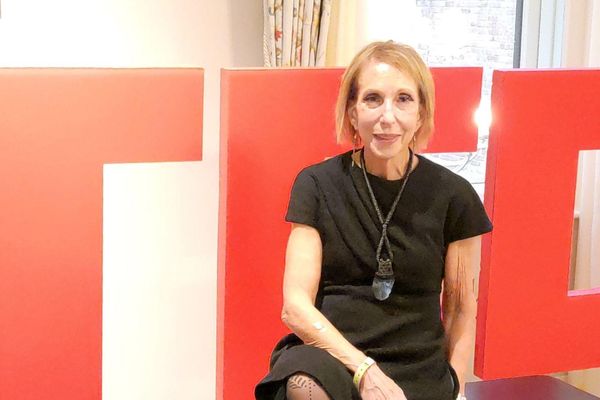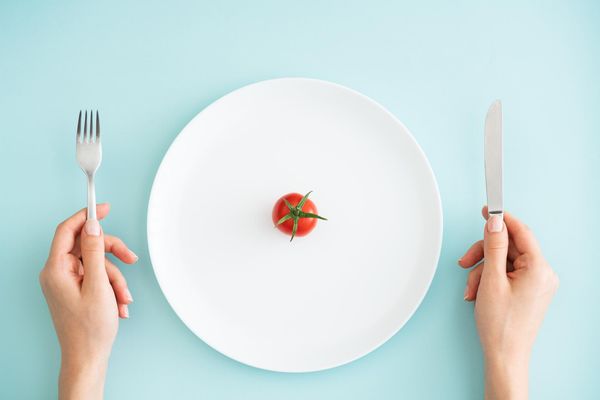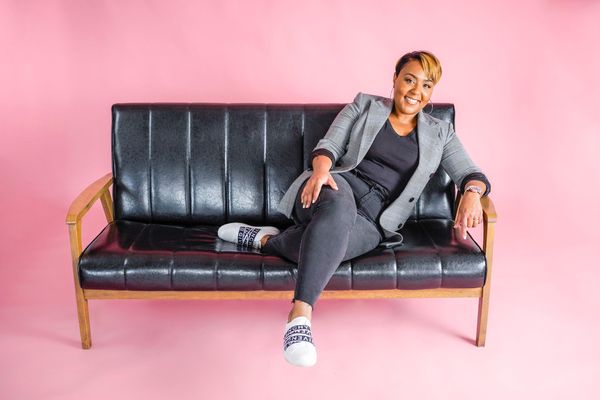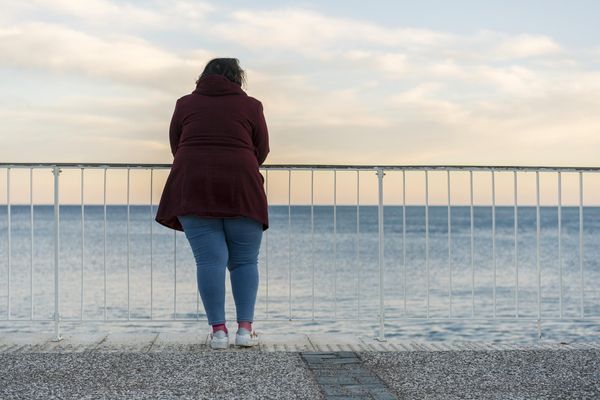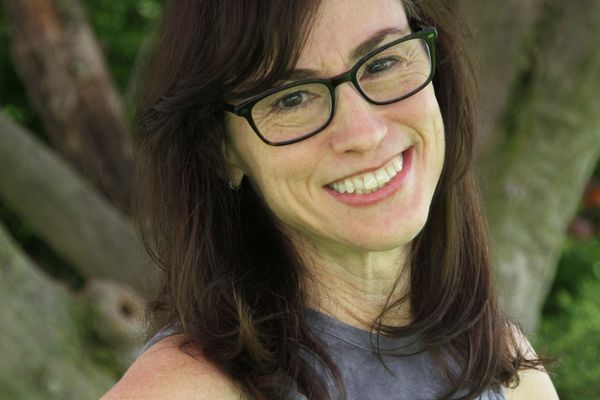As told to Vidya Rao
The following article contains specific descriptions of an eating disorder. If you feel that you might be triggered by the content, please read with caution.
For so long, I dreaded the lead up to Thanksgiving. The feeling of anxiety would begin weeks beforehand. While this food-centric holiday is joyous for many people, for people like me who are recovering from an eating disorder, it can be an extremely triggering event.
In the past it was so triggering, in fact, that I avoided Thanksgiving gatherings for several years. I didn't want to hear the comments about what I was eating or how my body looked. The positive comments were almost more detrimental than the negative ones. Hearing comments like "You look great" could send me spiraling, encouraging me to diet.
For weeks — even months — before Thanksgiving, I would severely restrict my diet. I would eat nothing before dinner on Thanksgiving day. Then, while at dinner with my family, I didn't want anyone to see me eat. I would hide my food and eat it later when no one was looking. I was filled with shame, and I didn't want anyone to know I was struggling. At some point, I began to try to cope by drinking too much alcohol, just so I didn't have to feel the stress and subsequent embarrassment.
The embarrassment felt familiar. I was around eight years old when disordered eating first came into my life. I started bingeing on sugar in secret. I would hoard candy and gorge on it when I was alone. I now know that was the way I coped with trauma that I had experienced.
By the time I was 12 years old, I grew self-conscious about my body. I was 5'7" and "overdeveloped" compared to my friends. The weight difference between my friends and me was pretty stark. That's when I started dieting.
A few years later, when I was in high school, I was practicing extreme restriction with food — severely restricting my calorie intake — and occasional purging. I would eat a piece of fruit for breakfast, a small lunch and just enough food at dinner so that people wouldn't notice I had a problem. Then I'd give myself a "free" day to binge. When the weight came off, it encouraged me to continue the cycle.
At that time, I still enjoyed the holidays. The first thing I'd hear from family members I hadn't seen were compliments about how great I looked. The recognition felt good, and it fed my disease. I was soon diagnosed with anorexia, and I had become so thin that the psychiatrist I was seeing told me I couldn't go to college unless I put on 20 pounds.
I did put the weight on, and for a few years, I overcame the urge to diet. But I relapsed in my 30s, and nearly lost everything. I went on a popular commercial diet, which triggered something in my brain and led to massively restricting my diet. I was already at a low body weight when something just snapped. I was in a stressful relationship, working all the time, and I essentially stopped eating, and I plunged into extreme anorexia for several years. I had to resign from the teaching job that I loved. It wasn't something I could hide from staff or my students, so I took what I thought would be a six-month leave to go to an outpatient eating disorder program. Eventually, it was clear that I needed inpatient care, as the eating disorder and health impact had become far more complicated.
Finally, I was put into a treatment center. My parents and treatment team did an intake for me without my knowledge and booked me a ticket for a facility in Arizona. I found out just two days before I was scheduled to leave. After that, I went in and out of treatment probably 20 times. But as my weight normalized, I started bingeing and purging. My anorexia led to bulimia, which then led to binge-eating disorder.
It took me a long time to deal with binge-eating disorder. Because it's not well understood by doctors — they just kept telling me to go on a diet, not recognizing how complicated that would be due to my history. Then about five years ago, I went to an intuitive-eating treatment center and learned to change my relationship with food, focusing on listening to what my body needs and practicing self-compassion. Since then, I've become a recovery mentor and a volunteer with the National Association of Anorexia Nervosa and Associated Disorders.
Thanksgiving, a holiday that essentially celebrates binge-eating, is always going to be difficult for me. But I've learned that with a little preparation, I don't have to miss out on family gatherings. The more I plan ahead and strategize with other people who have been through this, the better I do. Rather than ignore the anxiety, I try to lessen it.
I engage in a lot of positive self-talk ahead of time and talk to my therapist about it. I make plans that I know will uplift me the weekend after Thanksgiving, either with a friend who I know is safe for me or with people I've met in treatment who understand what I'm going through. I wear clothing that makes me feel comfortable so I'm not self-conscious. I choose who I sit next to wisely, seeking out family members who won't make comments about my body. When I feel anxious, I check in via text with a friend who understands and can support me. I only eat while sitting down at the table, and I try to eat slowly and mindfully.
Navigating life with an eating disorder is a lifelong journey. I'm thankful for the support systems and constant learnings that help me face it, one holiday at a time.
Resources
National Association of Anorexia Nervosa and Associated Disorders
National Alliance on Mental Illness
- The Rise in Eating Disorders in Midlife Women ›
- I Recovered From Anorexia in My 20s, but I’m Still Coping With the Damage to My Bones at 50 ›
- 8 Signs of Binge Eating Disorder - HealthyWomen ›
- I Had An Eating Disorder for 20 Years Before I Knew Anything Was ... ›
- Suffering in Silence: Middle-Aged Women and Eating Disorders ... ›

